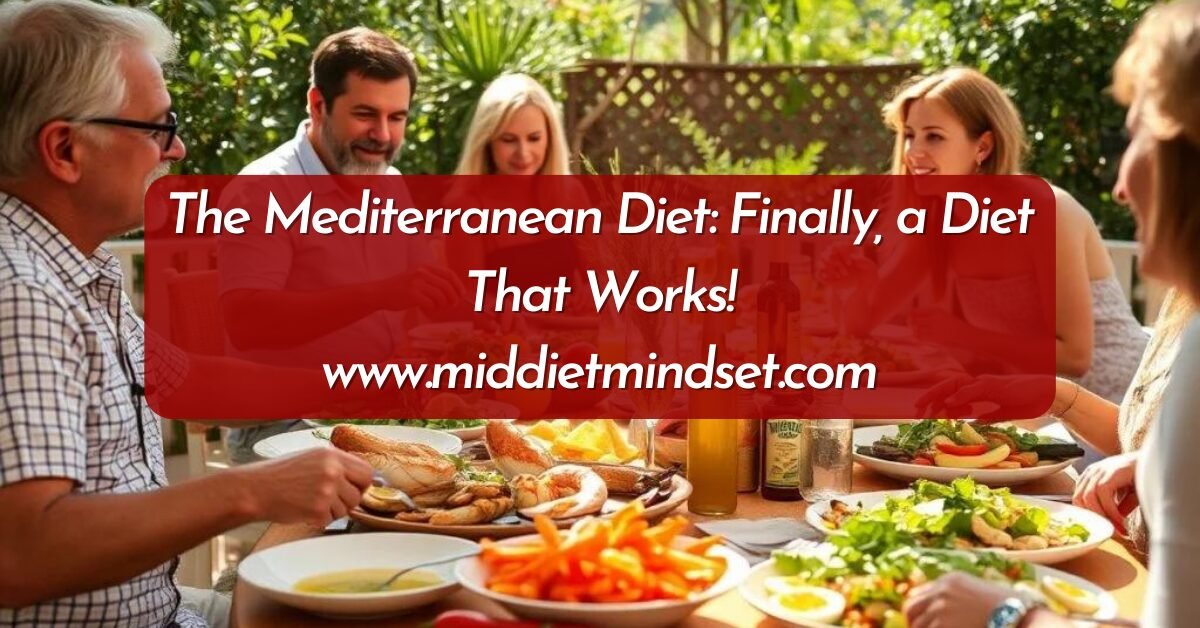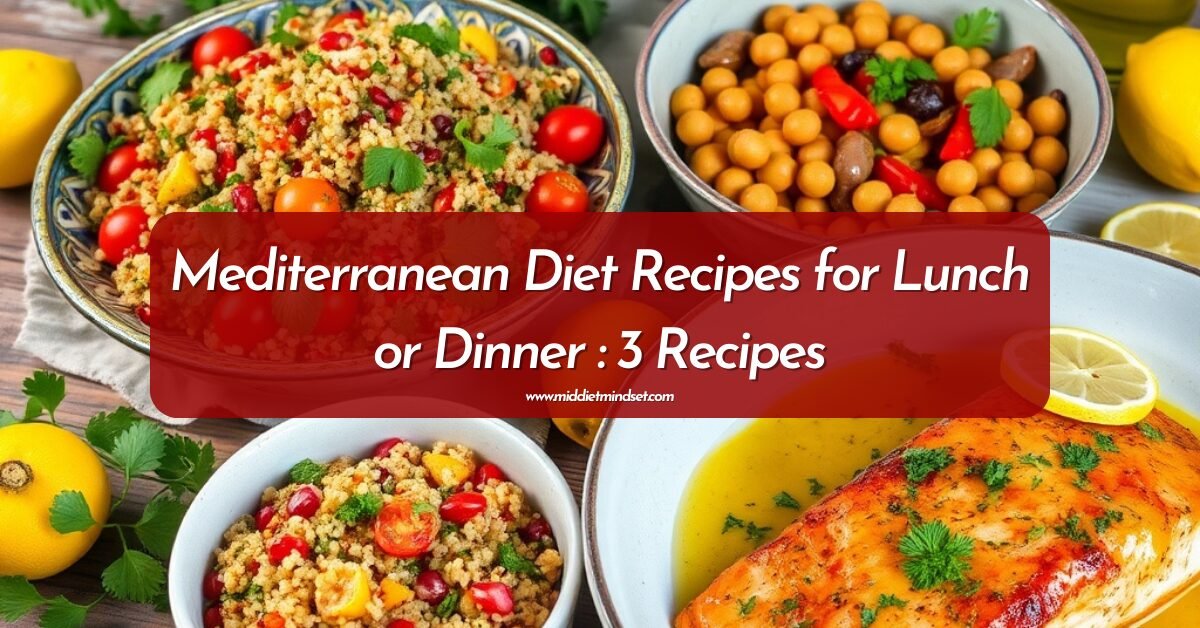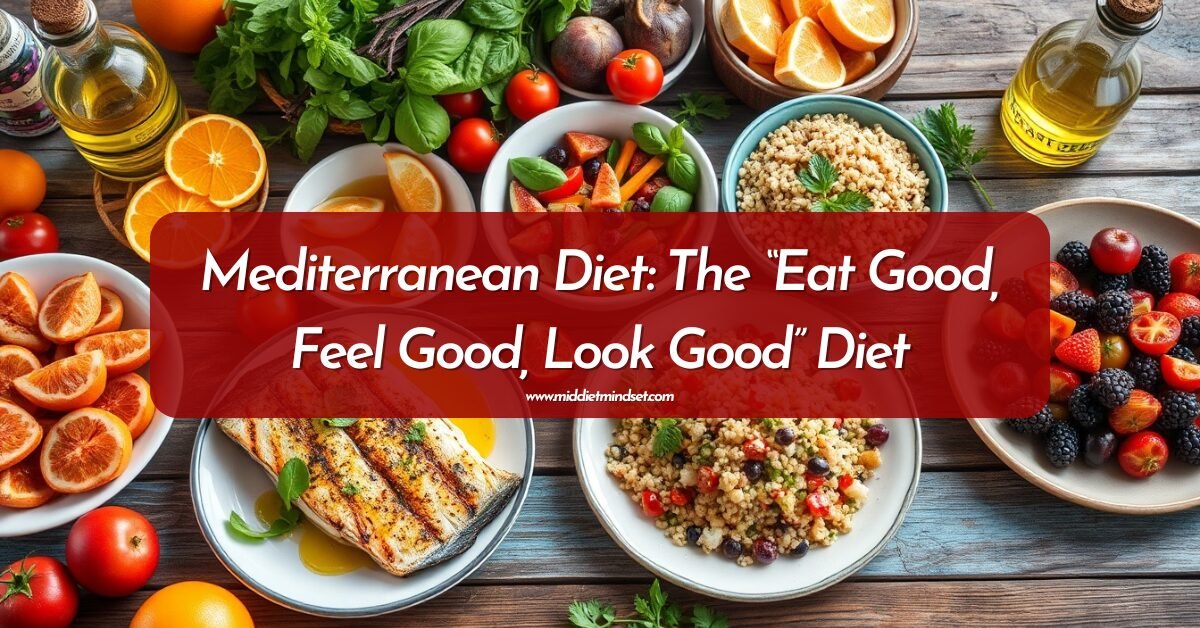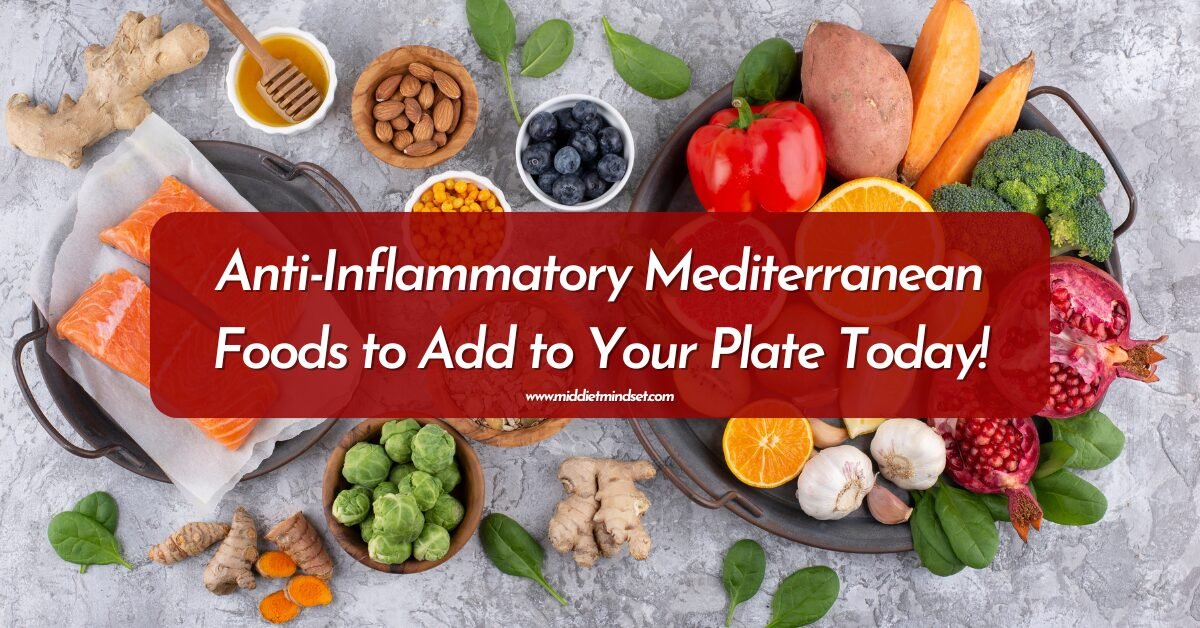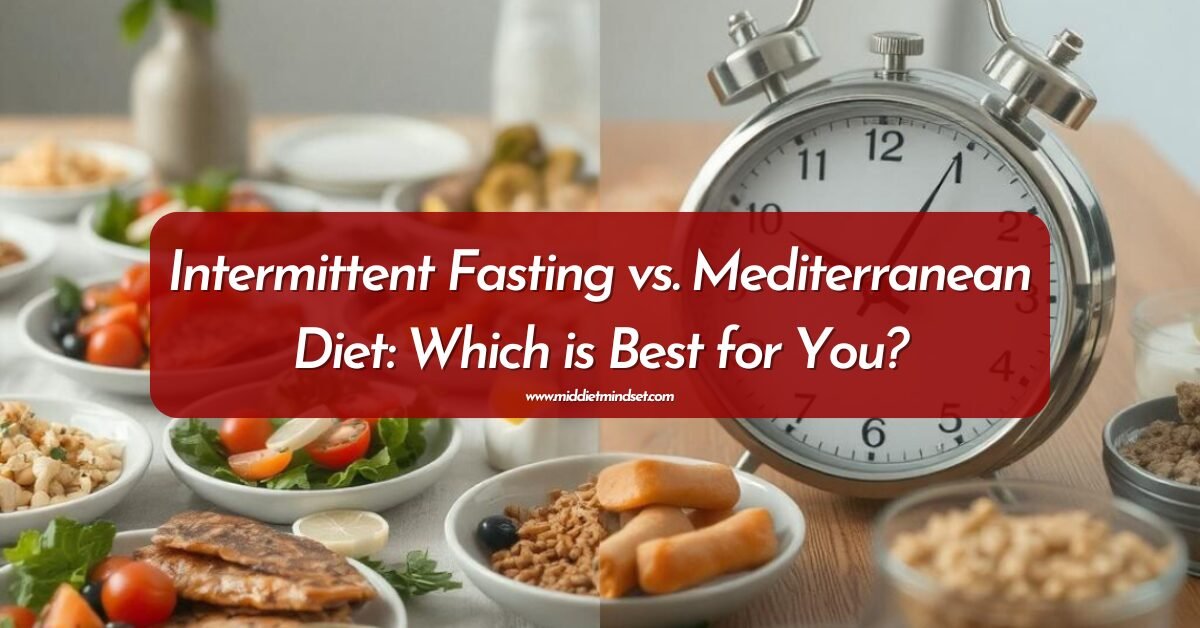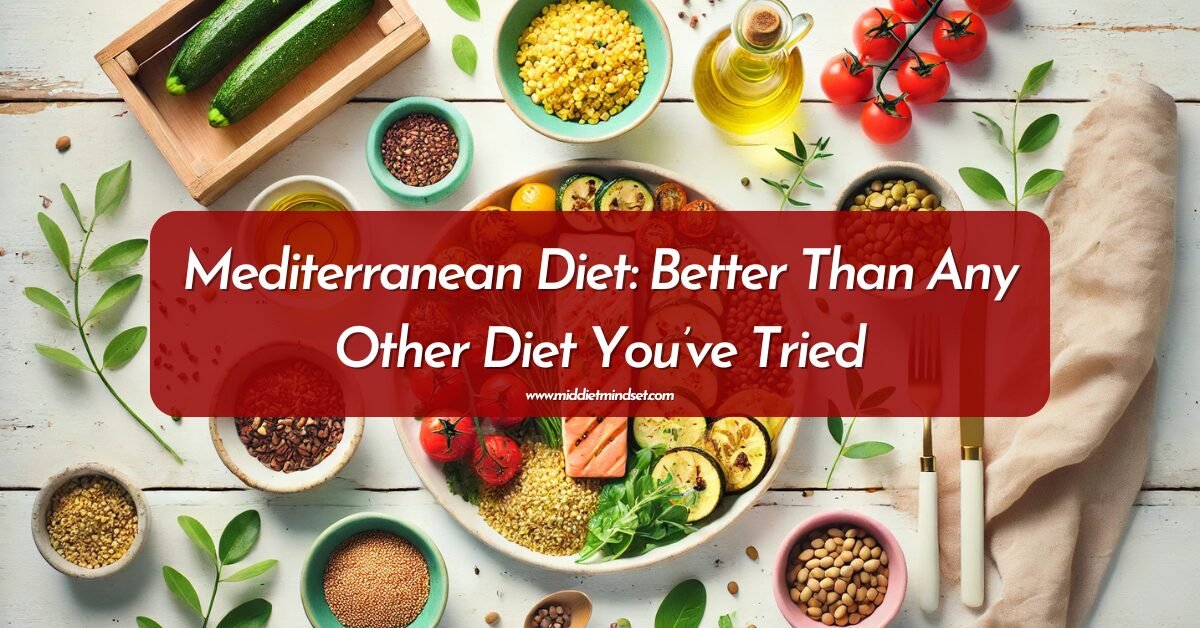It’s a new year, and if you’re like most people, you’re probably thinking about ways to improve your health. With so many options available, you might wonder: What is the best diet in 2025? Let me tell you—it’s not about trendy fads or extreme restrictions. The best diet in 2025 is one that’s sustainable, enjoyable, and backed by science. For me, as a dietitian specializing in the Mediterranean diet, the answer is clear. Let me show you why this approach can transform your year—and your health—for the better.
What Makes a Diet the Best in 2025?
Before diving into the specifics of the Mediterranean diet, let’s clarify what makes any diet “the best diet in 2025.” It’s not about rapid weight loss or following the latest celebrity trend. Instead, the best diet in 2025 is:
- Balanced and Nutrient-Dense
A diet that provides all the essential nutrients—carbs, proteins, fats, vitamins, and minerals—is crucial. It fuels your body, supports your energy levels, and keeps you feeling your best. - Sustainable and Practical
A great diet is one you can stick to for the long haul. If it feels like a chore or leaves you dreaming of forbidden foods, it’s not sustainable. - Flexible and Adaptable
Life happens. The best diets in 2025 allow you to enjoy a variety of foods and fit into your lifestyle. - Supported by Science
You deserve more than empty promises. Proven research should back the diet you choose, ensuring it’s effective and safe.

Why the Mediterranean Diet is the Best Diet in 2025?
Let’s cut to the chase: the Mediterranean diet has been consistently rated as the best diet in the world for years, and it stands out as the best diet in 2025. Why? Because it checks all the boxes above and then some.
Rich in Delicious, Whole Foods
The Mediterranean diet isn’t about cutting out entire food groups. Instead, it focuses on nutrient-dense, whole foods like:
- Fresh fruits and vegetables
- Whole grains (like quinoa and farro)
- Lean proteins (like fish and chicken)
- Healthy fats (like olive oil)
- Nuts, seeds, and legumes
Proven Health Benefits
From reducing the risk of heart disease to improving brain function, the Mediterranean diet is a powerhouse. Research also shows it helps with sustainable weight loss, making it a top choice for starting 2025 with health goals in mind. I’ve even seen clients with PCOS or diabetes thrive on this diet—it’s flexible enough to meet a variety of health needs.
To learn more about the Mediterranean diet & PCOS, read our article: Mediterranean Diet for PCOS: Does It Really Work?
I remember one client who came to me last January feeling overwhelmed. She’d tried every diet under the sun and was frustrated by the constant yo-yo effect. We started with small changes: swapping butter for olive oil, adding a handful of nuts to her snacks, and cooking one plant-based meal each week.
Fast forward six months, and she wasn’t just losing weight—she felt incredible. Her energy soared, her digestion improved, and she no longer felt deprived. That’s the beauty of the Mediterranean diet: it works because it’s not a “diet.” It’s a lifestyle shift.
How the Mediterranean Diet Compares to Other Popular Diets?
As people search for the best diet in 2025, many options claim to be the ultimate solution for health and weight loss. However, not all diets are created equal. Here’s a deeper look at how the Mediterranean diet stacks up against other popular choices, highlighting its unique advantages and addressing common misconceptions.
Keto Diet: Is High Fat Really the Answer?
The ketogenic (keto) diet has been a buzzword for several years, focusing on low carbohydrates and high fats. While it can lead to quick weight loss, especially in the beginning, keto has its drawbacks:
- Restrictive Nature: The keto diet eliminates many nutrient-rich foods like fruits, whole grains, and legumes. This can lead to deficiencies in essential vitamins and minerals.
- Sustainability Issues: Most people struggle to maintain keto long-term due to its restrictive and socially limiting nature.
- Health Concerns: High consumption of saturated fats, a common aspect of keto, may increase cholesterol levels and the risk of heart disease for some individuals.
The Mediterranean diet, by contrast, encourages a variety of foods, making it easier to follow while providing a balanced intake of macronutrients. It also emphasizes heart-healthy fats from sources like olive oil, nuts, and fish, which align with long-term cardiovascular health.
Paleo Diet: Back to Basics, but at What Cost?
The paleo diet promotes eating like our ancestors, focusing on unprocessed foods such as lean meats, fish, vegetables, fruits, and nuts while excluding grains, legumes, and dairy. While this concept promotes whole foods, it also has limitations:
- Exclusion of Nutrient-Rich Foods: By cutting out legumes and whole grains, the paleo diet misses out on fiber, vitamins, and minerals that are essential for gut health and energy.
- Questionable Historical Accuracy: The claim that humans thrived on a strict paleo diet is debatable, as ancient diets varied greatly depending on location and availability of food.
- Difficult to Maintain: The exclusion of entire food groups can make it hard to stick to and may lead to cravings or nutritional imbalances.
The Mediterranean diet embraces the diversity of food groups, including legumes and grains, which are excellent sources of fiber and plant-based protein. It provides the health benefits of a whole-foods diet without unnecessary restrictions.
Intermittent Fasting: Timing Over Nutrition?
Intermittent fasting (IF) focuses on when you eat rather than what you eat. Popular methods include the 16:8 method (fasting for 16 hours and eating during an 8-hour window) and alternate-day fasting. While intermittent fasting can help some people manage calorie intake, it has notable downsides:
- Focus on Timing, Not Quality: IF doesn’t inherently promote nutrient-dense eating. It’s possible to fast all day and still consume unhealthy, processed foods during eating windows.
- Not Suitable for Everyone: Those with certain medical conditions, like diabetes, or individuals prone to disordered eating may find fasting harmful rather than helpful.
- Short-Term Benefits: Studies suggest IF can help with weight loss and metabolic health, but there’s limited evidence of its long-term effects.
In contrast, the Mediterranean diet prioritizes the quality of your meals, encouraging nutrient-dense, satisfying options. While it can be paired with intermittent fasting for those who enjoy structured eating windows, its primary focus is on what you eat, ensuring you get the nutrients your body needs.
Vegan Diet: Ethical and Sustainable, But Nutritional Gaps Exist!
A vegan diet excludes all animal products and focuses entirely on plant-based eating. It’s often chosen for ethical or environmental reasons and can be very healthy if well-planned. However, veganism can pose challenges:
- Nutritional Deficiencies: Vegans need to pay special attention to nutrients like vitamin B12, iron, and omega-3 fatty acids, which are naturally abundant in animal products.
- Highly Processed Alternatives: Many vegan substitutes, like plant-based meats, can be highly processed and lack the nutritional benefits of whole foods.
- Social and Practical Challenges: Eating out or finding quick, balanced vegan meals can sometimes be difficult.
The Mediterranean diet shares some of veganism’s benefits, such as emphasizing plant-based foods, but it is more flexible. It includes moderate amounts of fish, dairy, and poultry, providing a more comprehensive nutrient profile without requiring supplements.
DASH Diet: Excellent for Blood Pressure, but Less Flexible!
The DASH (Dietary Approaches to Stop Hypertension) diet is designed to lower blood pressure by reducing sodium intake and focusing on fruits, vegetables, whole grains, and lean proteins. While it’s effective for heart health, it has its drawbacks:
- Overly Focused on Salt: While reducing sodium is beneficial, DASH can feel overly restrictive, especially for those without hypertension.
- Less Emphasis on Healthy Fats: Unlike the Mediterranean diet, DASH doesn’t highlight the benefits of olive oil and other sources of healthy fats.
- Can Feel Prescriptive: Its guidelines may feel rigid compared to the Mediterranean diet’s flexible and enjoyable approach.
The Mediterranean diet also supports heart health but with added benefits like a focus on anti-inflammatory foods, making it a more holistic choice.
Why the Mediterranean Diet Stands Out in 2025
The Mediterranean diet combines the best aspects of other diets while avoiding their pitfalls. It’s nutrient-rich, flexible, and enjoyable, which makes it sustainable for life—not just a short-term fix. While other diets focus on strict rules or one-size-fits-all solutions, the Mediterranean diet meets you where you are and allows you to build healthy habits over time.
Ultimately, if you’re looking for the best diet in 2025, the Mediterranean diet offers the perfect balance of health benefits, flexibility, and deliciousness. Why settle for less when you can enjoy a lifestyle that truly works?
Steps to Adopt the Mediterranean Diet
Making the switch to the best diet in 2025 doesn’t have to be complicated. Here’s how to start:
- Small Swaps for Big Impact
– Replace butter with olive oil for cooking.
– Snack on nuts instead of chips.
– Enjoy fish two to three times a week. - Plan Your Meals Around Plants
– Focus your meals on vegetables, legumes, and whole grains.
– Add more leafy greens to your salads and sandwiches. - Enjoy Your Food
– Take time to savor your meals. The Mediterranean lifestyle emphasizes enjoying food in a relaxed, social setting—so slow down and appreciate your meals! - Move More
– Physical activity is a key part of the Mediterranean lifestyle. Whether it’s a walk after dinner or joining a dance class, find ways to keep moving.

Conclusion
In a world full of weight loss gimmicks and trendy fads, the Mediterranean diet stands tall as the best diet in 2025 for anyone looking to improve their health and live a more vibrant life. It’s a sustainable, enjoyable, and scientifically proven way of eating that prioritizes real food, healthy fats, and an active lifestyle. If you want to feel good, look good, and live better in 2025, there’s no better choice than the Mediterranean diet.

Nour is a registered dietitian, nutrition researcher, and founder of MedDietMindset. With a passion for evidence-based nutrition, she specializes in Mediterranean diet strategies, PCOS management, and sustainable weight loss. Nour is dedicated to transforming complex scientific research into clear, actionable guidance to support healthier, long-lasting lifestyle changes. Through her blog, she empowers readers to build habits that prioritize well-being, balance, and vitality.

